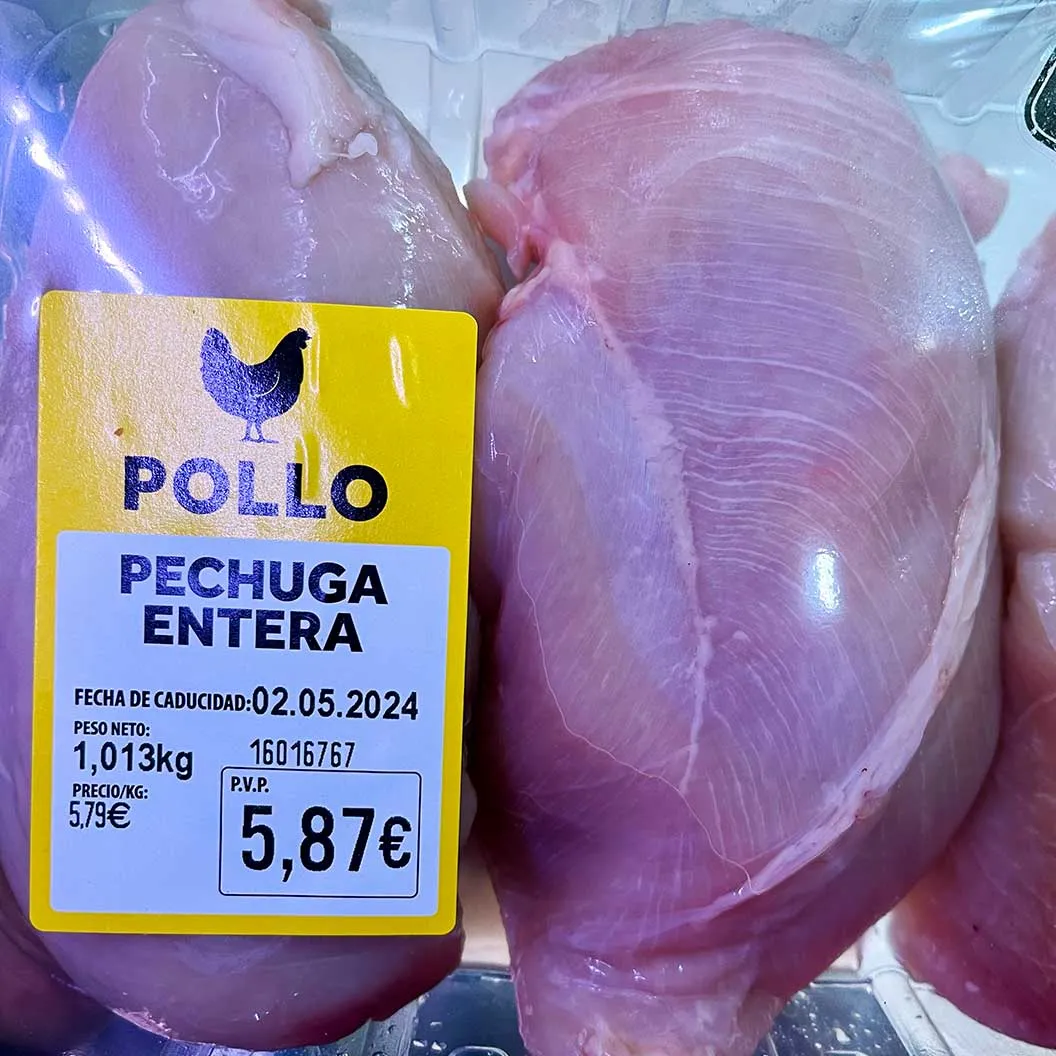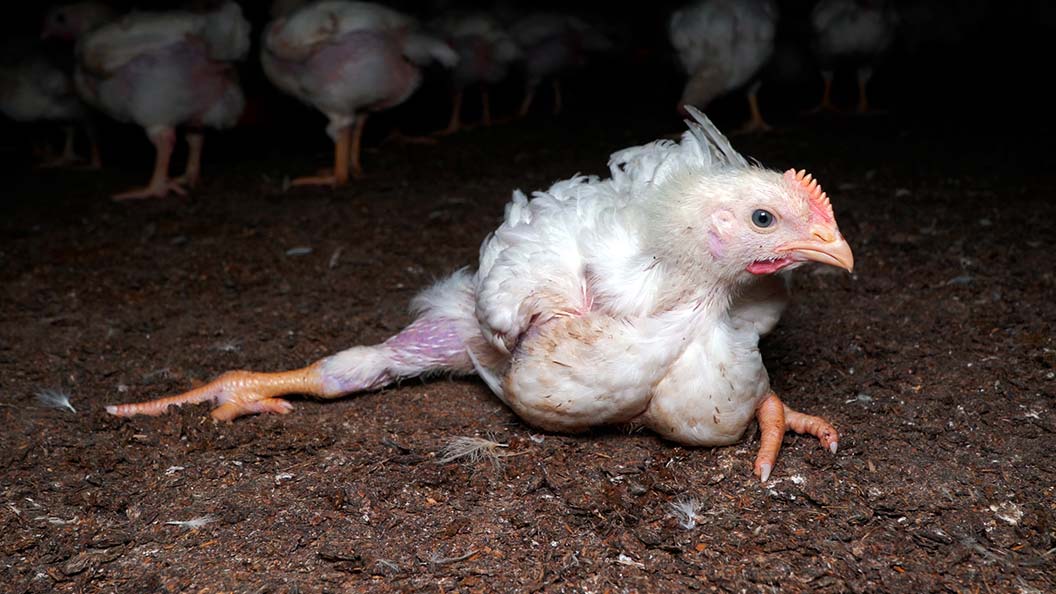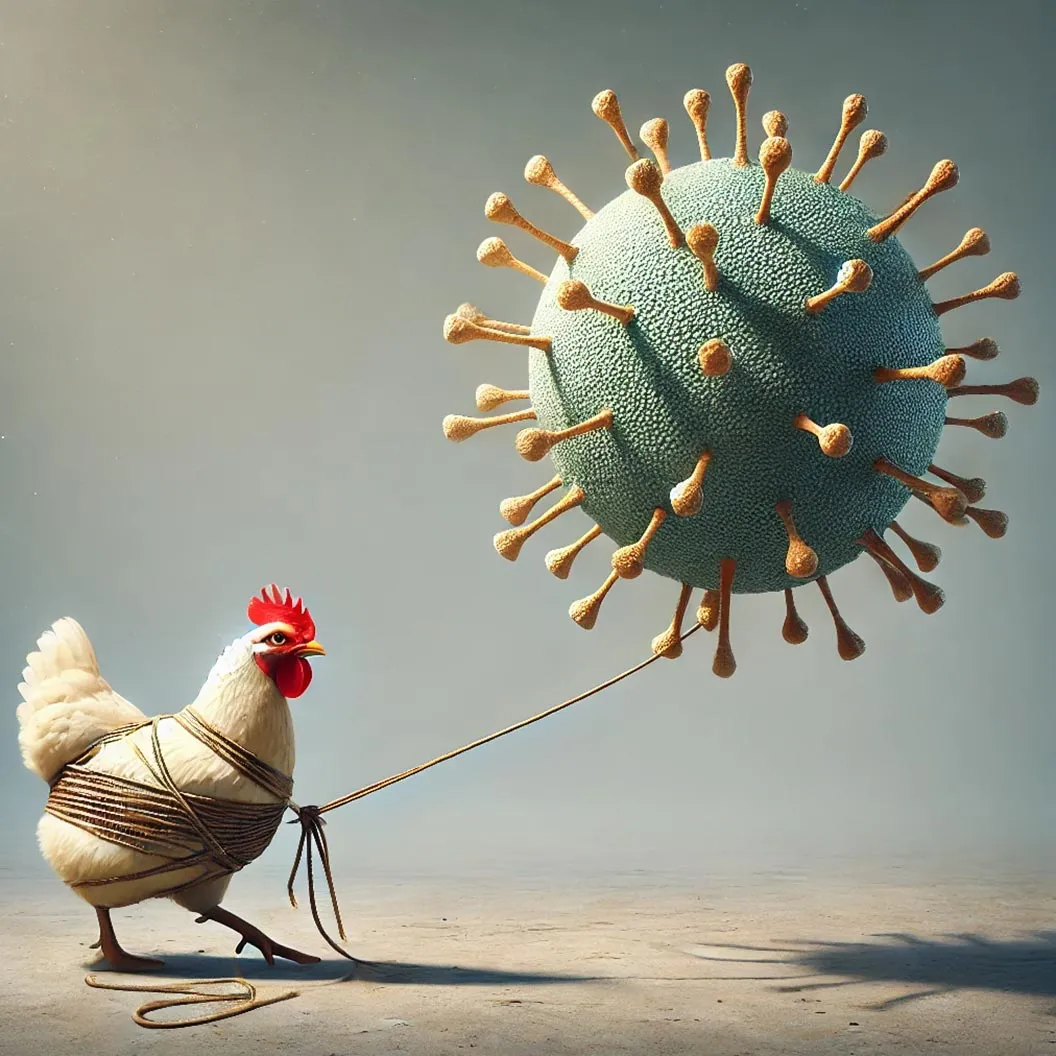98% of Lidl's Chicken Breasts Come from Chickens with White Striping Disease
In November 2024, we revealed that 98% of the chicken breasts sold by Lidl in its Spanish supermarkets could be affected by white striping disease, a condition linked to the intensive farming of fast-growing chickens.
03/12/2024

These findings are based on an analysis of 6,097 trays of chicken from 321 Lidl stores across all regions of Spain, representing nearly half of the chain’s stores in the country.
To conduct this study, we photographed each product and analyzed the images with the help of two veterinarians, who scored the visible presence of the condition on a scale from 0 to 3. The results showed that two out of three products displayed a significant or severe level of white striping, with over 20.4% of the chicken breasts showing severe signs.
White striping is a muscle disease resulting from the accelerated growth to which chickens are subjected in industrial farming. This condition is characterized by the appearance of white lines on the meat, which are fatty deposits caused by muscle necrosis.
The growth of these chickens is so unnatural that it is equivalent to a human baby reaching 300 kilograms (660 pounds) in just two months

The genetic selection used to breed these chickens has led to growth rates four times faster than in the mid-20th century, causing severe welfare issues in the birds, such as deformities, respiratory problems, lameness, and heart failure.
Additionally, white striping negatively affects the nutritional value, quality, and texture of the meat: up to 224% more fat, between 7% and 21% more calories, 10% less collagen, and up to 9% less protein
The study has been shared with the Ministries of Consumer Affairs and Agriculture, and we have requested a thorough investigation into the quality and nutritional composition of the private-label poultry products sold by Lidl Spain.





